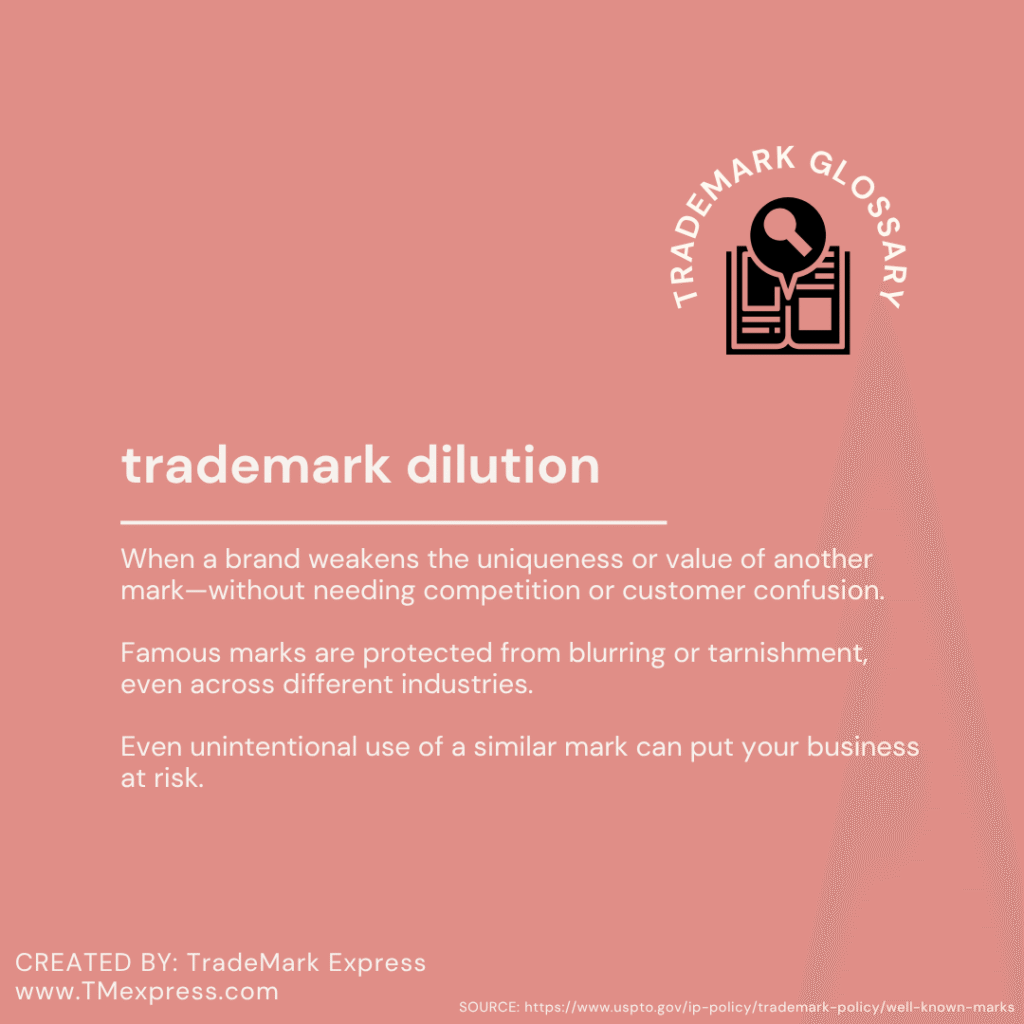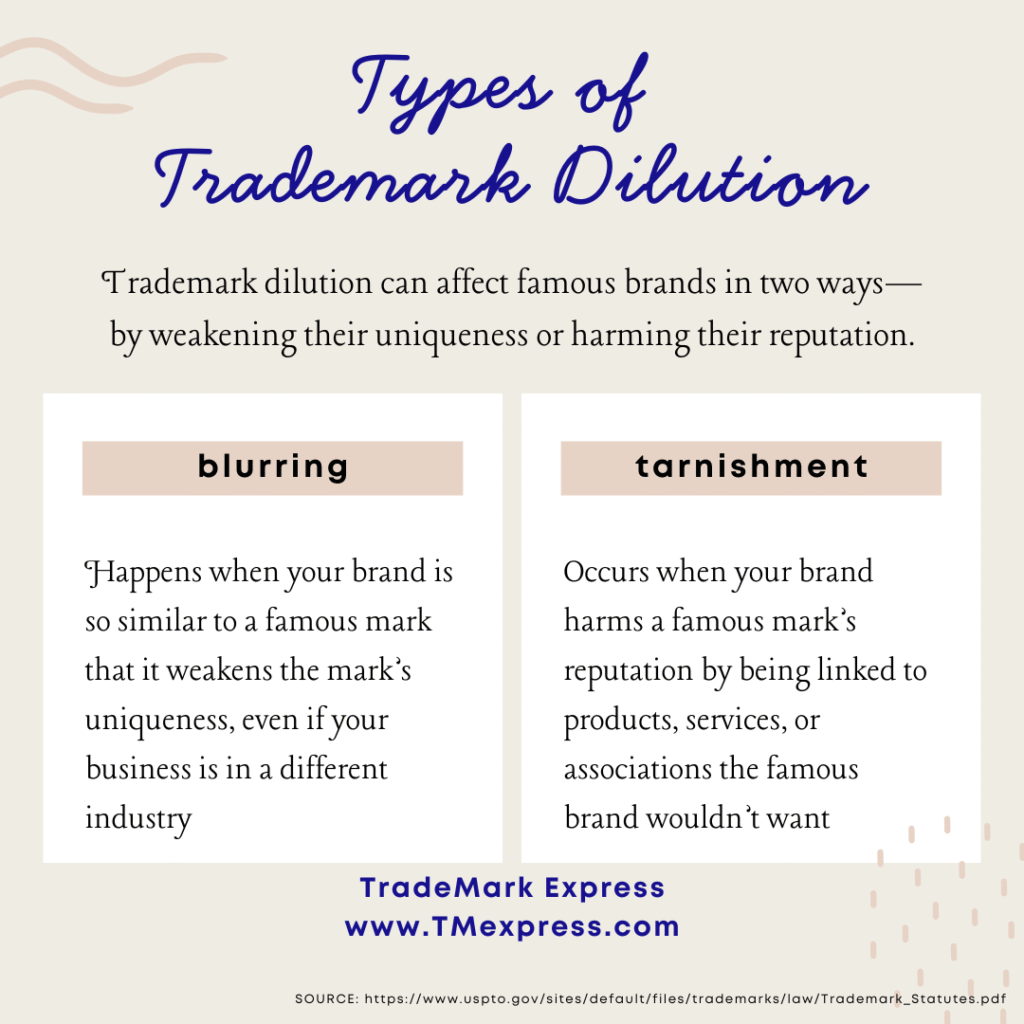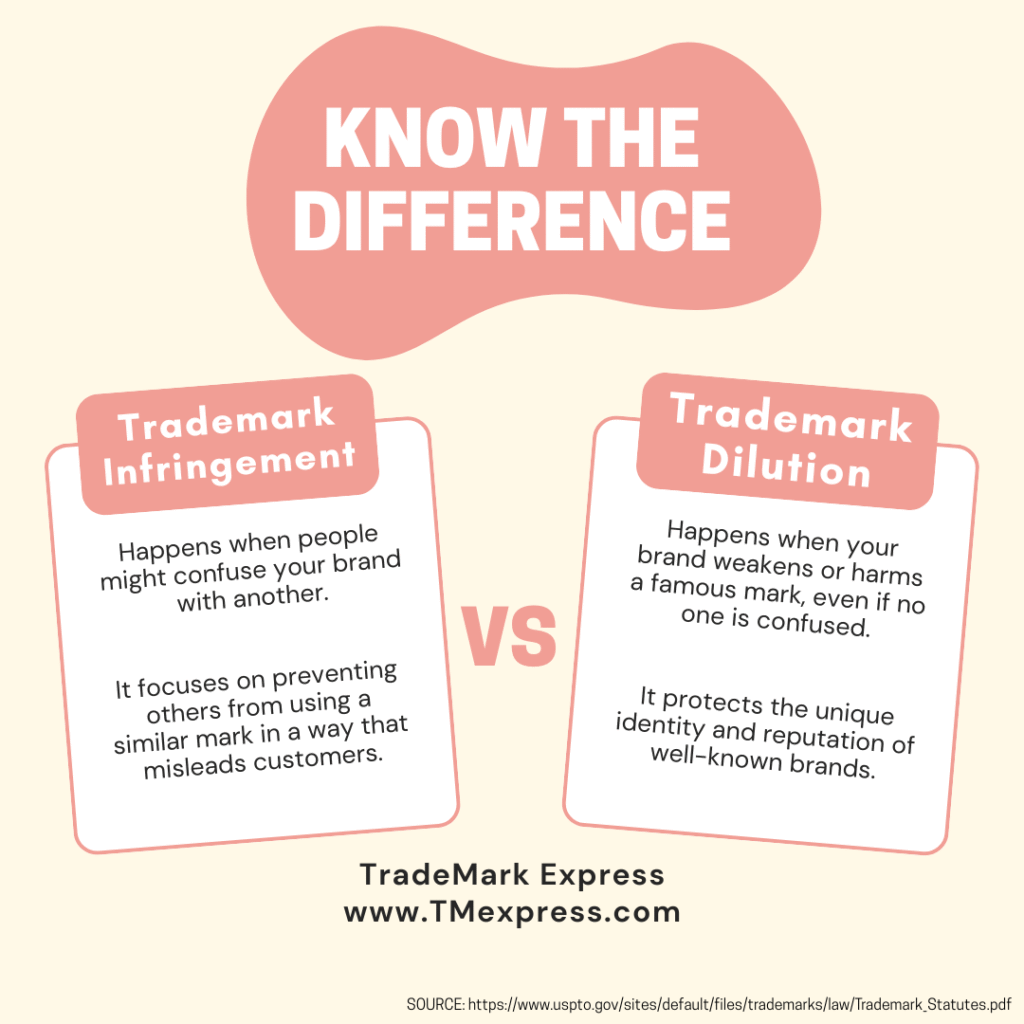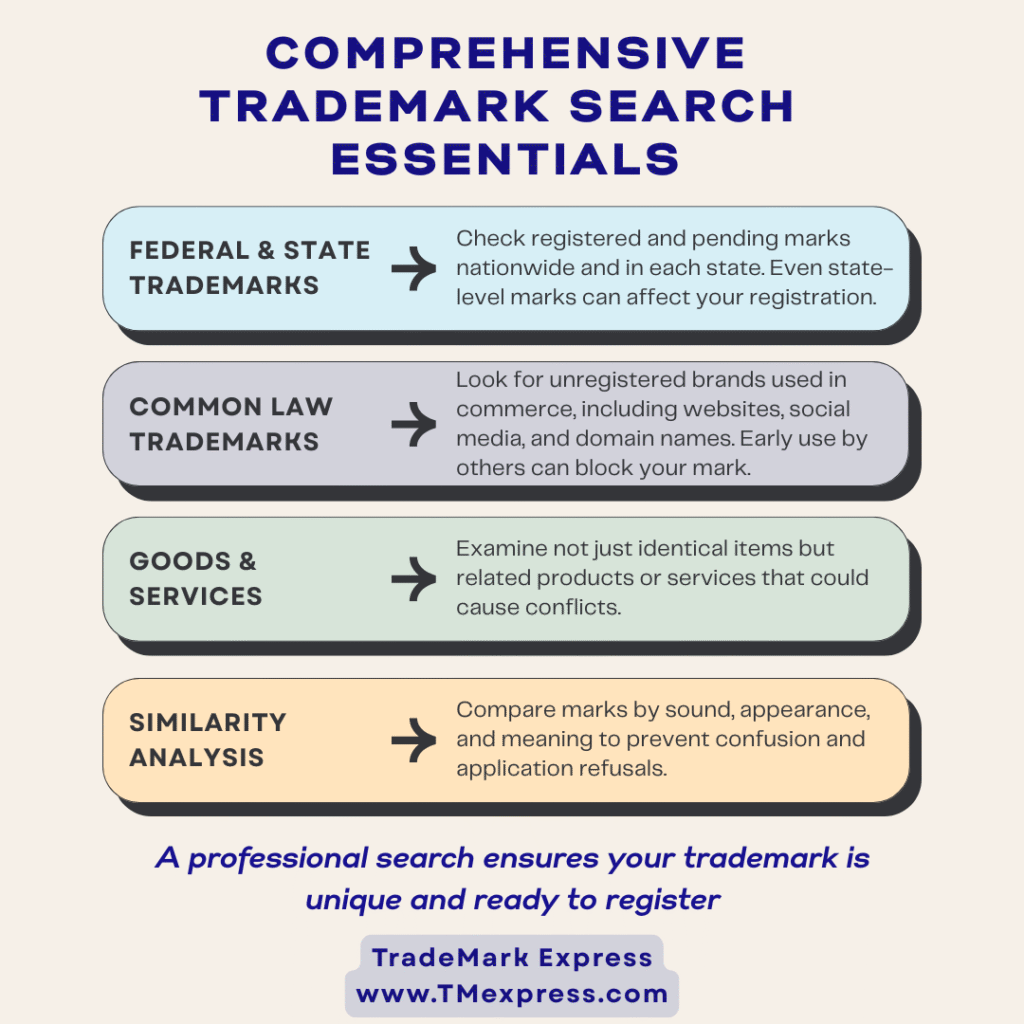Trademark Dilution Explained for Small Businesses
When building a brand, most small business owners focus on creating a unique name, logo, or slogan. But even without intending to, your brand could unintentionally affect someone else’s well-known mark. This is where trademark dilution comes into play.
Understanding trademark dilution is crucial—not just for protecting your own brand, but also for avoiding legal issues that could arise if your mark weakens or harms another brand.
What Trademark Dilution Is
Trademark dilution happens when a mark or brand reduces the uniqueness or value of another mark. Unlike standard trademark infringement, it doesn’t require direct competition or consumer confusion. Even if your business isn’t in the same industry as a famous brand, your mark could still dilute their brand if it’s similar enough.

The law protects famous trademarks that are distinctive, either inherently or because they’ve acquired recognition over time. Owners of these marks can seek an injunction if someone uses a similar mark that may cause dilution by blurring or dilution by tarnishment, regardless of competition or actual economic harm. In simple terms, you can’t weaken someone else’s well-known brand, even accidentally.
Types of Trademark Dilution
There are two main forms of trademark dilution:
Dilution by Blurring
Blurring occurs when a mark or brand becomes associated with a famous mark in a way that weakens its uniqueness. Courts may look at factors like:
- How similar your mark is to the famous mark
- How distinct the famous mark is
- How widely the famous mark is used and recognized
- Whether your brand seems intended to create an association
- Any actual associations that already exist
Even if your business operates in a different industry, a name or logo that’s very similar to a famous mark could make the original mark less unique.

Dilution by Tarnishment
Tarnishment happens when a mark harms the reputation of a famous mark. For example, if your brand is associated with products or services that the famous brand would not want to be linked to, it can damage the original brand’s reputation.
Understanding these distinctions can help you choose a brand that doesn’t accidentally harm someone else’s trademark.
Trademark Infringement vs Dilution
It’s easy to confuse trademark dilution with standard trademark infringement, but the difference is important:

- Trademark infringement requires a likelihood of consumer confusion—people must be able to mistake your brand for another.
- Trademark dilution does not require confusion. The focus is on protecting the unique identity and reputation of a famous mark, even if customers would not mistake one for the other.
Knowing this distinction helps small business owners understand why even indirect similarities can create legal risks.
Why Small Businesses Should Care
While famous or highly distinctive marks are most at risk, small businesses should still be careful. Even if you’re not targeting global recognition, launching a brand that’s too similar to a well-known mark could trigger legal action, costly disputes, or the need to rebrand. Being aware of dilution risks protects your business and helps you build a strong, unique brand from the start.
Importance of Comprehensive Trademark Research
Before settling on a brand, conducting thorough trademark research is essential. This should include:
- Federal trademarks – Registered with the USPTO for nationwide protection
- State trademarks – Registered in individual states; may conflict with local businesses
- Common Law usage – Marks used in commerce without registration, protected regionally if widely recognized
- Similar marks – Names or logos that sound, look, or mean something similar
- Related goods/services – Marks in the same or related industries that could create confusion or dilution

Thorough research can prevent legal issues and save time, money, and effort down the road.
Take Action Today
Trademark dilution may seem like an issue only for big brands, but small businesses are not exempt. Careful research and early protection are key to building a strong, lasting brand.
At TradeMark Express, we help small business owners and entrepreneurs navigate trademark research and application preparation, making it easy to protect your brand from the start. Contact us today to ensure your brand is unique, legally safe, and ready for growth.
